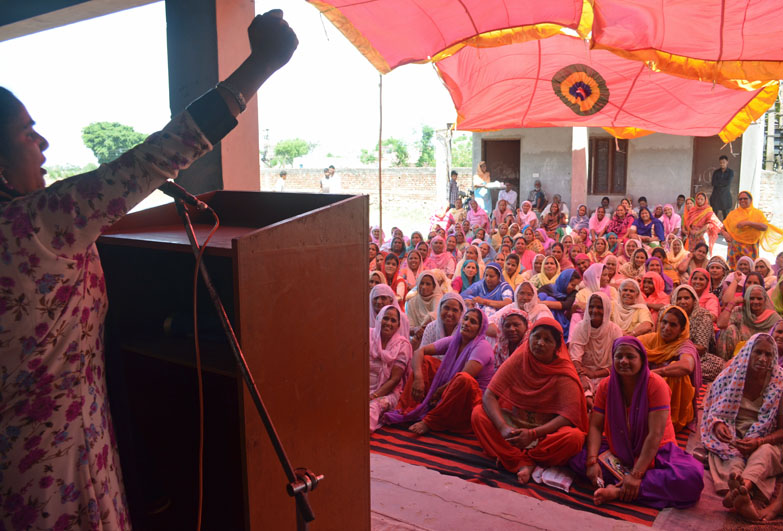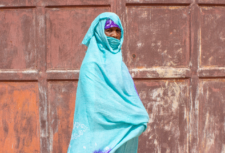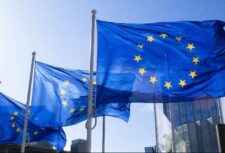Disclaimer: This article is more than 4 years old, and may not include the most up-to-date information or statistics. Please verify information with more recent sources as needed, and if you have any questions contact our Press Office.
Press Release: Companies and financial institutions should be legally bound to address human rights and environmental impact of their global operations and supply chains.

2 December 2019
Ahead of the Finnish EU Presidency’s business and human rights event today, over 100 civil society organisations and trade unions have now signed a letter calling on the European Union to develop effective legislation that would oblige companies and financial institutions to address the human rights and environmental impact of their global operations and supply chains.
The coalition is calling on the European Commission to introduce legislation establishing a corporate duty to respect human rights, the environment, and provide access to justice for victims of potential abuses. Such legislation could help companies and financial institutions prevent potential risks and ensure fair competition for European companies who act responsibly.
A so-called mandatory due diligence law would make companies and financial institutions legally obliged to identify, prevent, and mitigate, as well as hold them to account for potential abuses and harm in their domestic and global supply chains and operations.
Companies are already urged expected to do so under the United Nations Guiding Principles for Business and Human Rights and the Organisation for Economic Co-operation and Development (OECD) Due Diligence Guidance for Responsible Business Conduct. Yet, despite a growing trend towards hard law at the national level, there are still no cross-sectoral laws in the EU requiring companies and financial institutions to act. Such a law could build on similar legislation already passed or under discussion in individual member states such as France, Finland, Germany, Netherlands and Italy. However, an EU-wide law would be crucial to hold all companies accountable to the same standard.
Ben Vanpeperstraete, at Clean Clothes Campaign, said: “The coalition observes that decades of voluntary corporate social responsibility initiatives have failed to adequately protect human rights and the environment from problems such as forced labour and deforestation. Services and goods linked to environmental damage and human rights abuses have been continuously found in products and services in the EU.”
“It’s only fair to create a level-playing field for everyone, so that companies taking responsibility for their supply chains are not undercut by the race to the bottom.” said Chloe Cranston, Business and Human Rights Manager at Anti-Slavery International. “It’s time we create an economy where business is not carried out at the expense of vulnerable people exploited in the production of goods we buy in Europe.”
“The tide is turning and we’re glad to see the growing call for EU-wide legislation that would have a truly global impact”, she added.

Time for change
Chloe Cranston: Why the EU should make tackling abuses in supply chains mandatory
Rachel Owens, Head of EU Office at Global Witness: “The case for a mandatory EU law to ensure European companies and financiers are accountable for their environmental and human rights impacts globally is crystal clear. The EU has a golden opportunity to show global leadership by taking steps to get its own house in order and to ensure that business and finance work for people and planet”.
In addition to the one hundred civil society organisations calling on the EU to introduce mandatory corporate environmental and human rights due diligence, there is an increasing number of leading companies in favour of EU-wide legislation. The absence of such a law systematically undermines individual responsible business efforts, leaving them at a competitive disadvantage while continuing to incentivise an unsustainable business race to the bottom.
Heidi Hautala, European Parliament Vice-President and attending the Finnish Presidency event states that, “the level playing field is not just about rights for companies but also obligations. Citizens and victims of human rights violations have rights too! When the EU acts, the impact is felt beyond its borders. The EU must now show global leadership with mandatory due diligence legislation.”
More information:
The International Labour Organization estimates that there are estimated over 40 million people in forced labour globally, including 16 million people in exploited in a private economy.
Forced labour is estimated to generate annual profits of $150 billion and 321 human rights and environmental defenders were targeted and killed in 2018 – the highest on record; three quarters defending land, environmental, or indigenous peoples’ rights, often in the context of extractive and mega-projects. Women and girls are disproportionately affected by corporate abuse.
The Corporate Human Rights Benchmark found approximately half of the 200 largest companies in the world failed to show any evidence of conducting human rights due diligence.
Examples of human rights and environmental abuses linked to business supply chains:
- Rana Plaza disaster: a factory building in Dhaka, Bangladesh, housing garment factories producing clothes for Western brands, collapsed burying over 1,300 people.
- Money to Burn – More than 300 banks and investors back six of the world’s most harmful agribusinesses to the tune of $44bn.
- Enemies of the State? More than three people were murdered each week in 2018, with countless more criminalised, for defending their land and our environment.
- Products of slavery: map of products with a considerable risk of being affected by forced labour and child labour.
Notes to editor:
The organisations who signed the call include ActionAid, Amnesty International, Anti-Slavery International, CIDSE, Clean Clothes Campaign, Earth Europe, the European Coalition for Corporate Justice, Global Witness.
The call in full can be found here.
Contacts:
- For Anti-Slavery International, please contact the press team at media@antislavery.org or +44 7789 936 383.
- For Clean Clothes Campaign, in Amsterdam, Romy Rehfeld, romy@cleanclothes.org, +44 7561209987.
- For Global Witness, please contact EU office, Bettina Guigui, bguigui@globalwitness.org, +32 456 13 75 43





